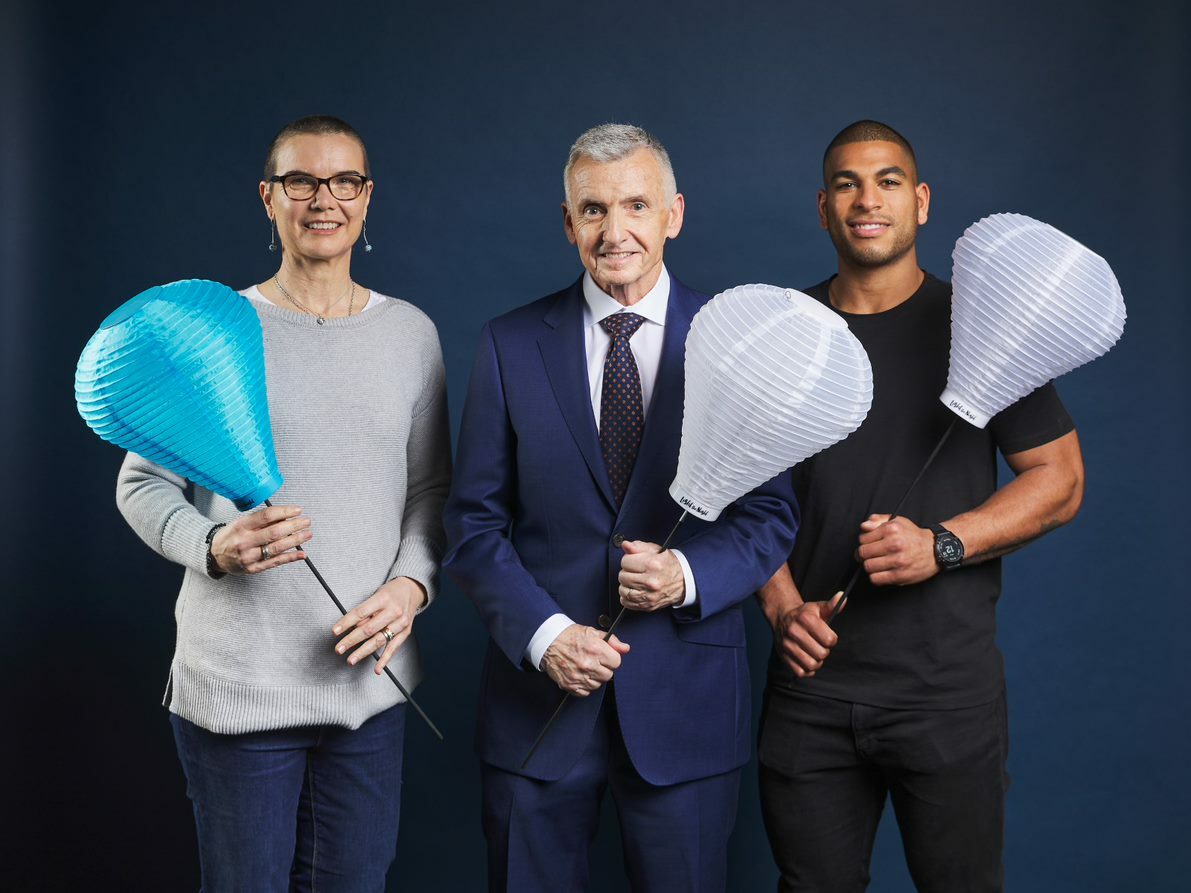The Leukaemia Foundation Welcomed Emma as Our Light the Night Blue Lantern Ambassador for 2022
14 September 2022
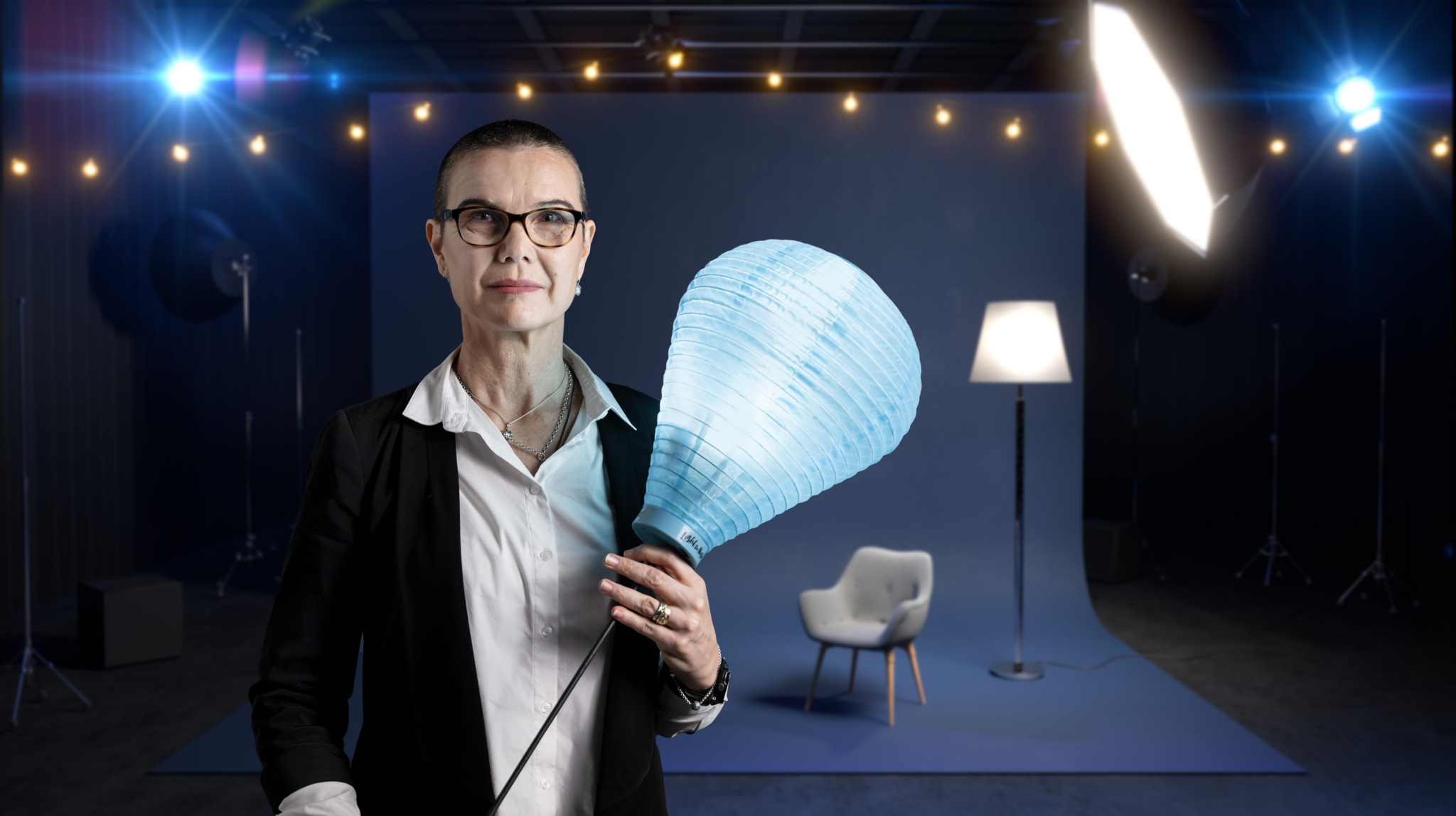
On Friday, 30 September, Emma lit a blue lantern in support of her Son, Elliott, who was diagnosed with acute myeloid leukaemia (AML) in March 2021.
In 2021, Emma's son, Elliott, was diagnosed with acute myeloid leukaemia (AML) just after his 21st birthday—and their entire family’s lives were turned upside down.
"Our family’s blood cancer experience started in March 2021,” the Queenslander said. “My son, Elliott, was unwell enough to find himself being taken to hospital early one morning. He'd been unwell for a few weeks, suffering intermittent and quite severe pain in his chest. We finally convinced him to go to the Emergency Department to get some pain medication. They did a few tests, and a couple days later, he was diagnosed with blood cancer.”
With a background in haematology, Emma knew more than most parents about blood cancer.
She reflects on her initial feelings after being confronted with the shocking news.
“When we heard Elliott's diagnosis, it was late on a Friday night, and we were shocked. I was shocked. But it didn't last long. Because I looked over to Elliott and he needed us. He needed, Andrew [his Dad], and I who both have a background working in haematology at a diagnostic lab. He knew what we did, and he knew that we knew more than most parents do about blood cancer. And I guess we didn't have time for the shock, we just had to support Elliott.”
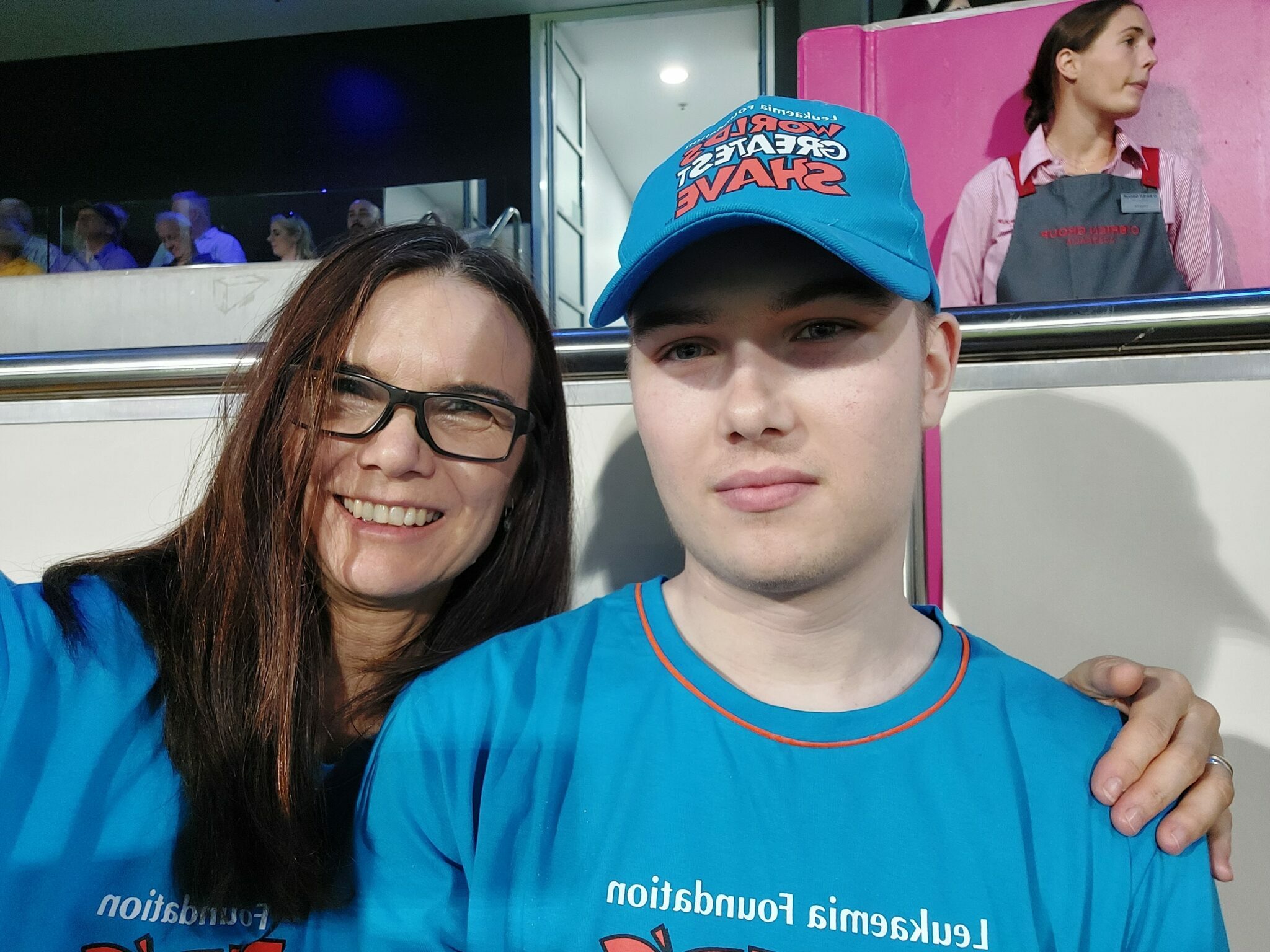
The next step was determining how to treat him.
“There was always talk that he would have a bone marrow transplant, and the search for a suitable donor happened from very early on. Unfortunately, Elliott’s brother wasn’t a full match, and they were forced to look outside the family for a donor as Elliott commenced induction chemotherapy, which is a very intense chemotherapy used for acute myeloid leukaemia (AML).”
After a period of being in and out of hospital for four months and having found a donor—another 21-year-old male—he was admitted for his bone marrow transplant which Emma described as “wonderful news”.
She also reflected on the brutality of the treatment that Elliott was subjected to in preparation for the transplant.
“The transplant treatment—the preconditioning before you're given the cells—is brutal. There's no other word for it. And I remember his team saying nothing will prepare you for the treatment involved in a transplant. And they were right. Nothing could prepare us. But within four weeks, Elliott was home”, and thankfully, in remission.
Despite being in remission, Elliott is still being monitored closely as the family embarks on life’s next chapter
“Elliott is doing well. He's in remission, which is wonderful news. He is suffering a bit of graft versus host disease, but his doctors are treating him and it's not at a level that it's affecting his quality of life. So they're just monitoring him quite closely, a bit more closely than they were a few months ago. But they're trying to get his medication right to treat the graft versus host disease and balance it with the risk of relapse. So, he's happy. He's doing things he loves. We're in a good place.”
Upon reflecting on her family’s blood cancer experience, Emma acknowledges that while her son has returned to the life that he had pre-diagnosis, their lives will never be the same.
“Elliott is pretty much back to his pre-transplant health and spending a lot of time doing things that he loves. Andrew and I are back at work. I wouldn't say that we're ever going to get back to normal though.”
“I think that we're forever changed, having gone through what we've gone through, and we will continue to go through for many years—even if Elliott has no more speed bumps or hurdles to get across. Caring for Elliott during his diagnosis, treatment, and recovery is one of the easiest and hardest things I've ever done. It can be hard to see them go through so much pain and suffering but he is a joy to be around, and he gives me strength and purpose beyond what I thought I was capable of.”
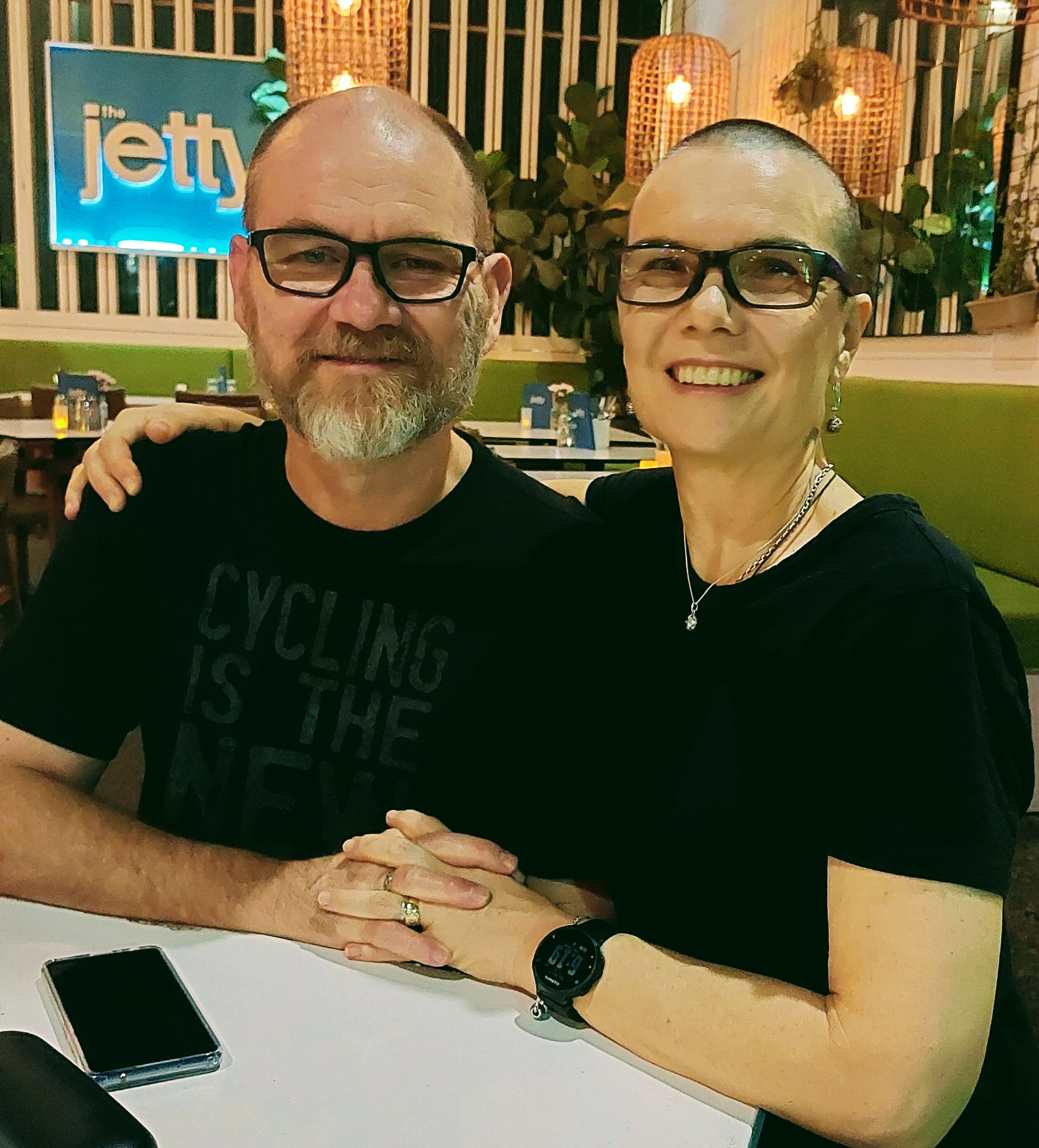
Emma on the Leukaemia Foundation’s blood cancer support and information services
The Leukaemia Foundation offers a range of services to help families touched by a blood cancer, including Australia’s only dedicated blood cancer support line. Anybody who has been impacted by blood cancer can connect with a skilled blood cancer support professional and access the latest information and supportive care services—which Emma found particularly useful and comforting when navigating Elliott’s diagnosis.
“I found that the Leukaemia Foundation had a huge amount of information that I found really reassuring.”
After connecting with the Leukaemia Foundation’s information support services and learning about similar blood cancer experiences from stories she found on the website, she was reminded that her and her family were not alone in their journey.
“It was all in a form that lots of people could [easily] understand. But it was also detailed enough to satisfy my questions and give me answers to things that I wanted to know. I particularly enjoyed reading about new directions for research, and new treatments for disease specific blood cancers that hadn't been able to be treated well before. I also found personal stories of patients and their families, which made me feel [better] because I could see everything they went through. It just reassured me that other people who have been through it before weren't alone.”
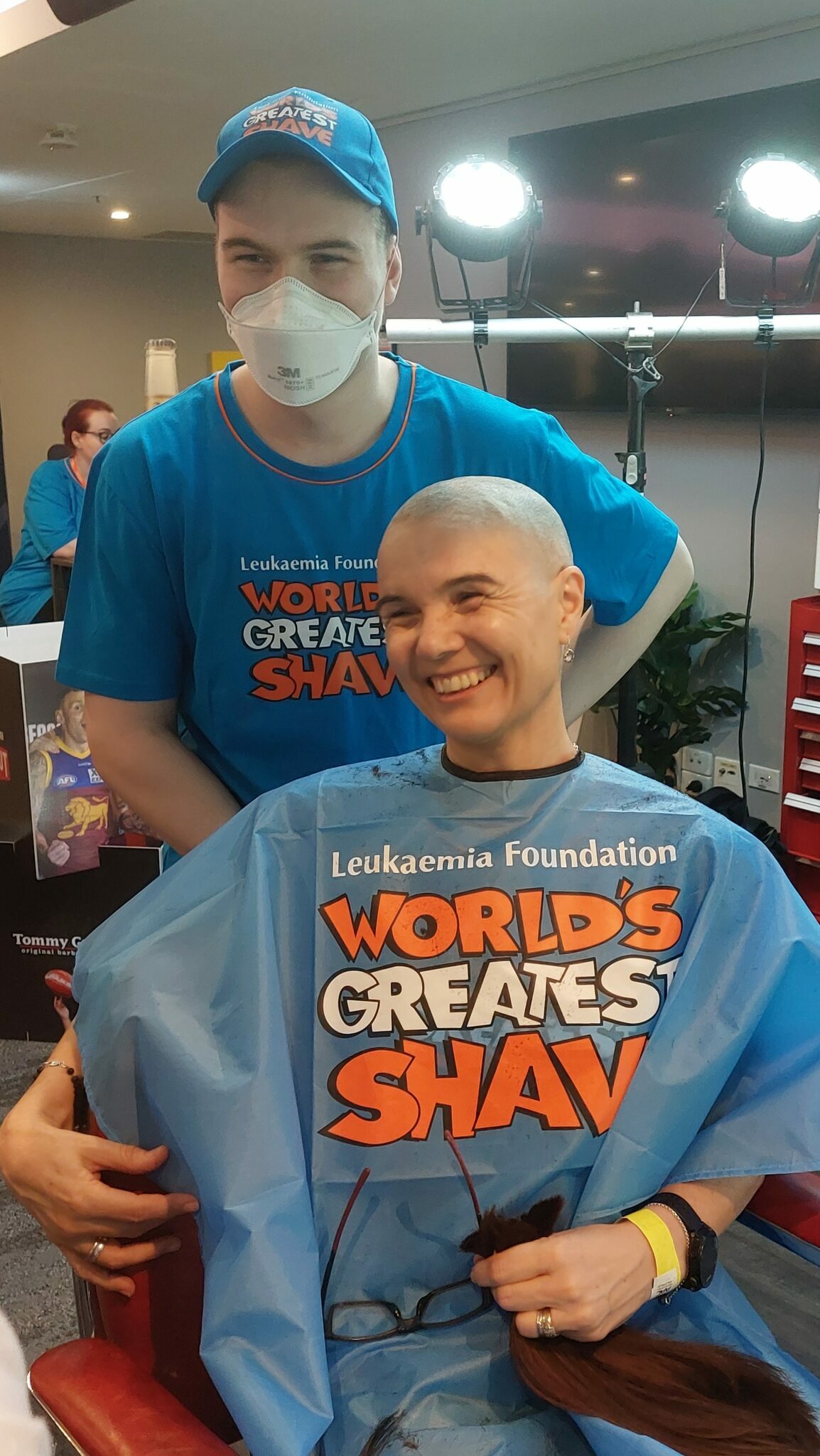
As the blue lantern ambassador for Light the Night 2022, Emma reflected on what Light the Night means to her.
“I think [Light the Night] celebrates the fact that there are so many people that are there for you during one of the worst periods of your life,” Emma said.
“Whether you're the person going through blood cancer, it's your job to look after someone who goes through blood cancer, or a loved one that has gone through blood cancer, an event like [this] makes you realise there's a lot of other people going through something similar. You don't feel so alone.
Emma is proud to represent not only those who directly support a loved one with a blood cancer, but every other stakeholder that each play a crucial role in someone’s blood cancer journey.
"I wanted to represent those people who support people with blood cancer. Not only the family and friends of those suffering from blood cancer, but the doctors, the nurses, the scientists, the professional healthcare workers, and the operational health care workers who are all really there to support that person through, their diagnosis, their treatment, and their recovery.”
